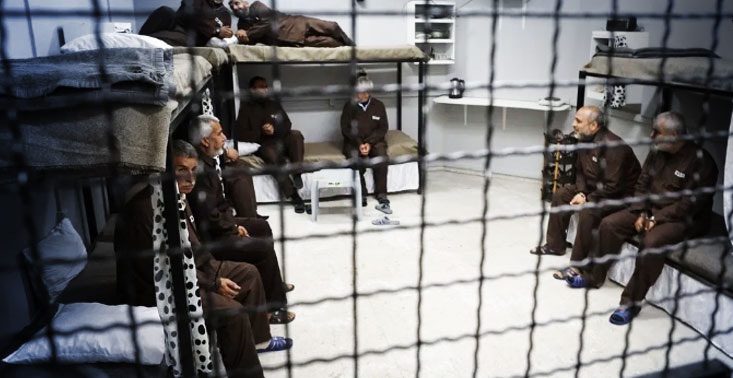The Al-Arabi Al-Jadid news outlet, citing the Palestinian Prisoners Society (PPS), reported that Muten is suffering from colon cancer and his condition is constantly worsening in prison. Also, an advocacy group for rights of Palestinian prisoners announced on Monday that one of the prisoners is still in the administrative detention despite the fact that he is suffering from cancer and doctors warn he needs urgent treatment.
The PPS argues that the medical negligence of the Israelis is the cause of the worsening of the conditions and even death of Palestinians in Israeli prisons.
Administrative detention or systemic torture?
According to reports, 73 Palestinian prisoners have died in Israeli prisons since 1967 due to medical negligence. This figure was announced by the PPS that, among other things, demanded the immediate release of Muten for proper access to medical care. Muten has been imprisoned in Israel for a total of nine years, mostly in administrative detention. Administrative detainees are not charged with a crime, nor are they tried, and even their lawyers are denied access to their cases.
The administrative detention time varies between three to six months and can be extended for unlimited period. This type of detention is regularly criticized by the human rights organizations and the rights activists assert that this kind of detention is a violation of the legal process. But so far, Tel Aviv has made no decision to abolish this process that is censured as inhumane.
In some cases, even the opposition of the prisoners to holding military trial and their request for ordinary courts cause extension of administrative detentions. A prisoner support group announced that the administrative detention of a Palestinian prisoner by Israel was extended due to his opposition to the military court ruling. A human rights group in Tel Aviv called B'Tselem has also confirmed the unfavorable judicial situation in the occupied territories and said that the Israeli authorities widely use administrative detention against Palestinians, disregarding international criticism.
A report by Amnesty International obviously admits existence of Israeli apartheid system against the Palestinians and calls the administrative detention a gross violation of human rights by Israeli justice system.
A noteworthy point is that Israeli settlers who live illegally in occupied settlements in the West Bank are tried under civilian laws, but Palestinians as original residents of the West Bank are tried under the military legal system and strict military courts. Regardless of the fact that the occupation of the West Bank is unquestionably illegal, Israeli racial discrimination is also rife in this part of Palestine.
Hell in Israeli prisons
As an occupying regime, Israel does not adhere to its commitments for international laws that demand medical services and treatment for the captives and prisoners. This became obvious from the inhumane treatment of the Palestinian prisoners and providing limited medical services to them during the coronavirus outbreak. Figures suggest that since occupation of the West Bank and Eastern Al-Quds by the Israeli regime in 1967, over 800,000 Palestinians were detained by the Israeli forces, accounting for around 20 percent of the total Palestinian population.
Since 2000, about 8,000 Palestinian children have been arrested by Israeli forces. Also, according to the Addameer a rights advocacy website, as of August this year, 4,500 Palestinians have been in Israeli prisons, of whom 340 are administrative prisoners, 140 children, and 41 women. Also, Addameer said that by August this year, 4,500 Palestinians were kept in Israeli prisons, with 340 of them administrative detainees, 140 children, and 41 women.
Palestinian prisoners are living in tough conditions in the Israeli prisons and face torture, overcrowding, isolation, threats to relatives, and family visit ban. Over years, they have protested at these conditions by going on hunger strikes, but these inhumane conditions continue. These hunger strikes also lead to many diseases, from diarrhea and respiratory infections to anemia, heart disease, and kidney failure, and many of the kidney and intestinal problems of prisoners are the result of these frequent hunger strikes.
Even women prisoners have tough times. They are interrogated
inhumanely with blindfolded eyes, hands in cuffs, and tightened to
chairs. They are often banned from changing their clothes. Their access
to bathroom is limited and they are subjected to verbal and sexual
abuse. Psychological consequences of such brutal behavior include
anxiety, insomnia, suicide attempts, acute depression, and hysteria.
Also, some child prisoners are kept for up to a month in solitary
confinement and sometimes are left without food, blanket, and adequate
heat along with intense fear, a sense of helplessness, emotional
disorders, and extreme stress in imprisonment.
/129

